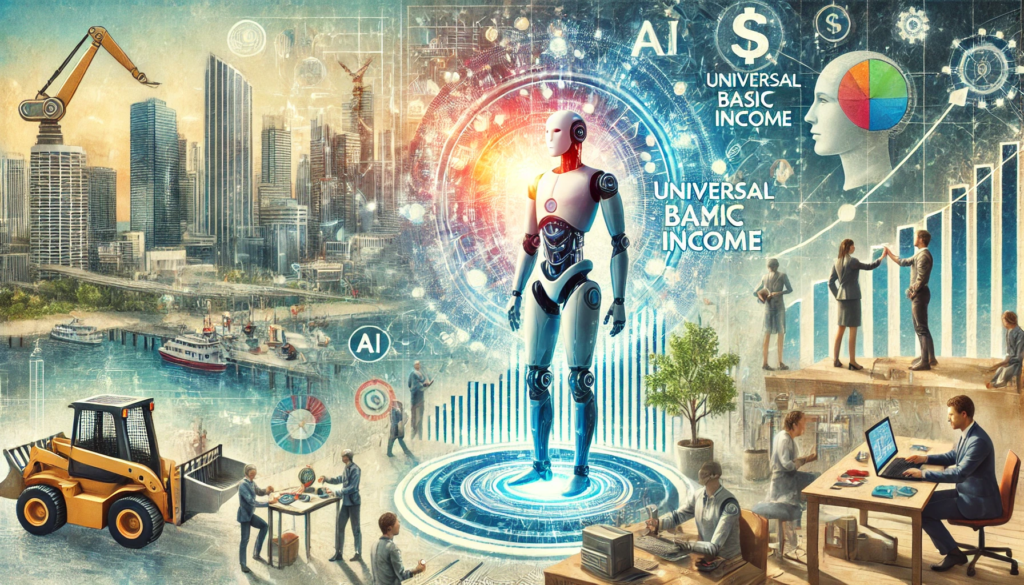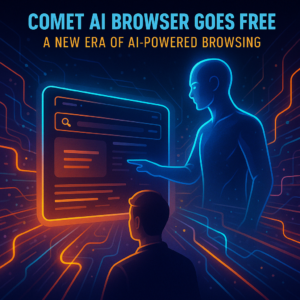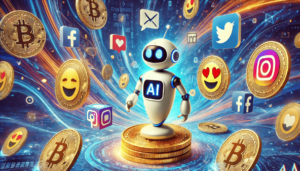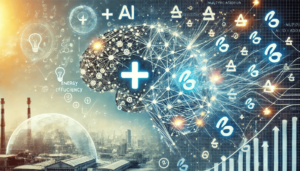The Future of Work: AI, Job Displacement, and the Role of Universal Basic Income

The future of work: How AI and job displacement could lead to universal basic income and the rising importance of empathy and emotional intelligence.
- How is AI impacting job displacement and what are the potential future scenarios?
- What role do empathy and emotional intelligence play in leadership amidst technological advancements?
- Could universal basic income be a solution to job losses caused by AI and automation?
The rapid advancement of artificial intelligence and robotics is reshaping the landscape of employment. As AI systems become increasingly capable, concerns about job displacement are intensifying. This technological upheaval is driving discussions about potential solutions, including the implementation of Universal Basic Income. A recent article on Forbes by Q Hamirani explores these themes, offering a critical perspective on the implications and future scenarios of AI-driven job displacement.
The Rise of AI and Robotics in the Workforce
AI and robotics are revolutionizing industries by automating tasks that were previously performed by humans. From manufacturing to customer service, these technologies are enhancing efficiency and productivity. However, this transformation comes with a significant downside: the displacement of human workers. The automation of jobs raises concerns about unemployment and economic inequality, as machines increasingly replace roles that require repetitive or routine tasks.
A 2024 insight by McKinsey Global Institute estimated that by 2030, up to 375 million workers, or 14% of the global workforce (as estimated by McKinsey in 2020), may need to switch occupational categories due to automation. This shift is not just about the loss of jobs but also the need for reskilling and upskilling workers to adapt to new roles that AI and robotics cannot yet fulfill.
The Case for Universal Basic Income
As AI and robotics continue to disrupt traditional employment, the concept of Universal Basic Income (UBI) has gained traction as a potential solution. UBI involves providing all citizens with a regular, unconditional sum of money, regardless of employment status. This financial support aims to ensure a basic standard of living and mitigate the economic impact of job displacement.
Proponents of UBI argue that it could provide a safety net for those affected by automation, allowing them to pursue further education, retrain for new jobs, or engage in entrepreneurial activities without the immediate pressure of financial insecurity. Additionally, UBI could stimulate the economy by increasing consumer spending, as individuals would have more disposable income to spend on goods and services.
The Ethical and Social Implications
While the idea of UBI is gaining support, it also raises ethical and social questions. One of the primary concerns is the potential loss of identity and purpose that many individuals derive from their work. Employment is often closely tied to a person’s sense of self-worth and societal contribution. As AI and robotics take over more jobs, there is a risk that people may struggle to find new roles that provide the same level of fulfillment and purpose.
Moreover, there are concerns about the feasibility and sustainability of UBI. Critics argue that funding such a program would require significant tax increases or reallocation of government spending, which could be politically challenging. Additionally, there is the question of whether UBI would truly address the root causes of economic inequality or simply provide a temporary fix.
Emotional Intelligence and Empathy in Leadership
As the workforce evolves, the qualities of effective leadership are also changing. In an AI-driven world, empathy and emotional intelligence are becoming increasingly important. According to Forbes, modern leadership demands a profound understanding of human emotions and the capacity to empathize with others. Leaders who can connect with their employees on a personal level, understand their motivations, and foster a supportive environment are proving to be indispensable.
A study by the Harvard Business Review found that leaders who exhibit empathy and emotional intelligence significantly outperform their peers. These qualities are essential for managing the stress and uncertainty that come with technological disruption. As companies navigate the complexities of the global market, the ability to connect with both customers and employees on a personal level is proving to be a key driver of success.
Preparing for the Future
To address the challenges posed by AI and robotics, a multifaceted approach is required. This includes not only considering the implementation of UBI but also investing in education and training programs that equip workers with the skills needed for the jobs of the future. Governments, educational institutions, and private companies must collaborate to develop initiatives that support lifelong learning and reskilling.
In addition, fostering a culture of empathy and emotional intelligence in the workplace can help ease the transition for employees affected by automation. By prioritizing the emotional well-being of their teams, leaders can create a supportive environment that encourages adaptation and innovation.
Future Outlooks
The rise of AI and robotics presents both opportunities and challenges for the future of work. While these technologies have the potential to drive unprecedented levels of efficiency and productivity, they also pose significant risks of job displacement and economic inequality. Universal Basic Income offers a potential solution, but it is not without its challenges and ethical considerations.
As we navigate this transition, it is crucial to prioritize the development of emotional intelligence and empathy in leadership. By fostering a supportive and inclusive work environment, we can help ensure that the benefits of AI and robotics are shared broadly across society. The future of work will require a balance of technological innovation and human-centric policies to create a sustainable and equitable economy.
Learn more about job displacement and the future of work by consulting the discussions and analyses in my previous articles.




